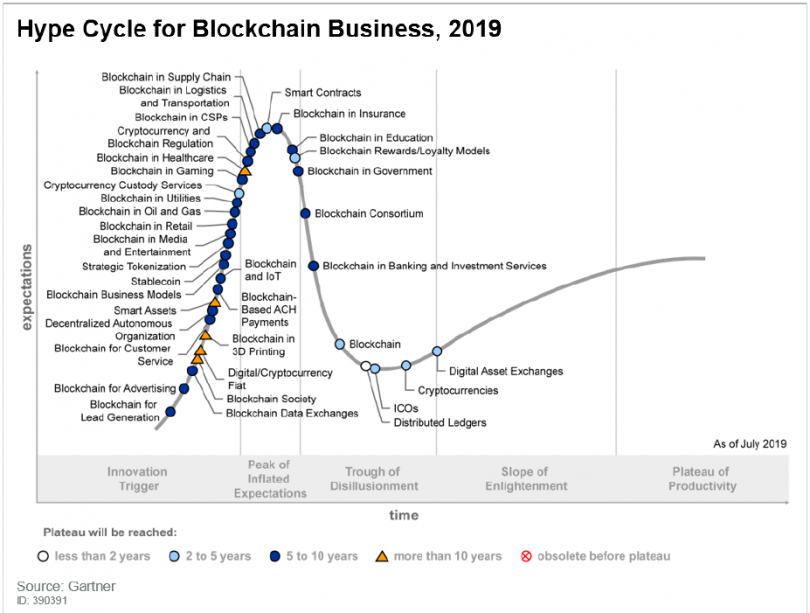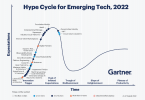Yesterday Gartner unveiled its 2019 hype cycle. It plots different aspects of blockchain and identifies Distributed Ledgers as the one to reach maturity first. In terms of sectors, it cites banking as the most mature, followed by government, education and insurance.
Across all sectors, 60% of CIOs expect some adoption of blockchain within three years.
Despite banking being the most advanced industry, Gartner says only 7.6% of the sector’s CIOs believe it is a game-changing technology. Nonetheless, 18% have already or will adopt blockchain within the next 12 months. The figure rises to 33% at a 24-month timespan.
“We see blockchain in several key areas in banking and investments services, primarily focused on permissioned ledgers,” said David Furlonger, Gartner VP. “We also expect continued developments in the creation and acceptance of digital tokens. However considerable work needs to be completed in nontechnology-related activities such as standards, regulatory frameworks and organization structures for blockchain capabilities to reach the Plateau of Productivity – the point at which mainstream adoption takes off, in this industry.”
The surprise is that the Oil and Gas sector is still going up the innovation curve and Gartner says it expects maturity in five to ten years. We’ve observed it as one of the most advanced industries, well ahead of healthcare. For example, VAKT the post-trade blockchain covers trades for more than 90% of North Sea Oil. The comparatively small number of major players is a crucial reason for the relative maturity that we’ve witnessed.
Two other sectors highlighted by Gartner are gaming and retail. Gaming enables players to trade virtual goods, and in-game assets can be used across gaming platforms. Yesterday, CrytoKitties creator Dapper Labs announced its new blockchain and a partnership with UbiSoft. Ripple has also made significant investments in the sector.
In terms of retail, Gartner identifies typical supply chain use cases such as tracking, anti-counterfeit applications, inventory and audit. But it emphasizes that some of the most significant added value will come from loyalty programs.







